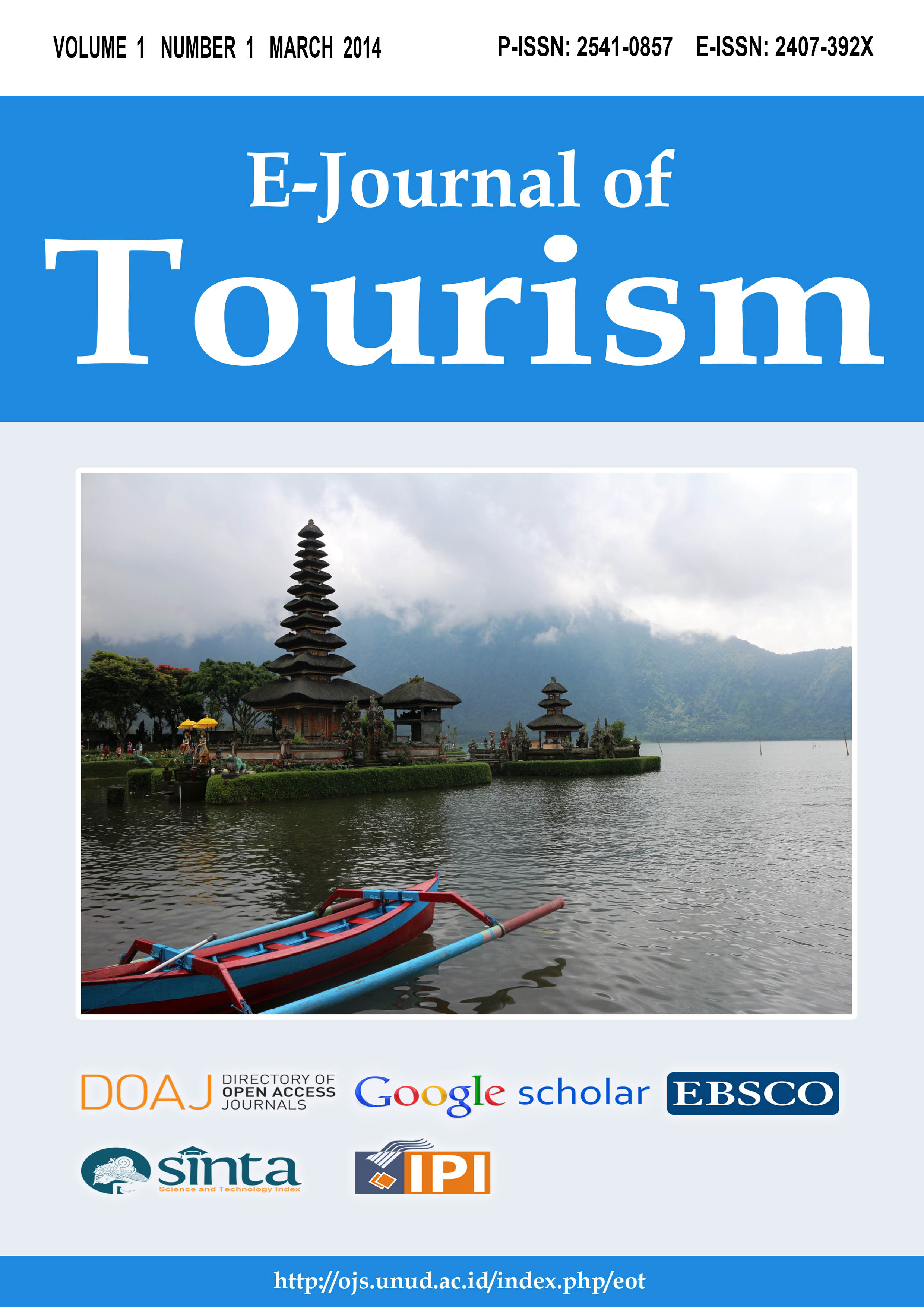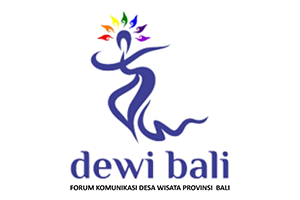Destination Marketing Strategy in Bali Through Optimizing the Potential of Local Products
Abstract
This study was designed to study destination marketing strategy in Bali through optimizing the potential of local products. Seventy nine of hotel managers were interviewed based on cluster sampling method to gain their point of view. The results show that destination must build their images around unique attributes that provide them sustainable competitive advantage including its attraction which should be designed to meet the needs of the target market and should be served by local products. The results also show that hotel managers thought that foreign tourists always preferred imported products, meanwhile previous statistical results indicate that foreign tourists significantly look for local products. There is a need to encourage hotel managers to change their perception and attitude about local and imported products. In fact, hoteliers expressed willingness to use local products as long as these meet the quality standard. As tourism involves four types of activities, namely something to see, something to do, something to buy, something to learn, destination product development could be focused in the above activities through offering foreign tourist, such as to stay in hotels, homestays or villas owned by Balinese; to eat in restaurants owned by Balinese by choosing the authentic local foods that are using local meat, seafood and vegetables, exotic local fruits and beverages; and to buy products that are produced by the Balinese. By promoting vacation on the real Balinese atmosphere such as stay in accommodations owned by the Balinese supported by the authenticity of local Balinese foods, fruits and beverages, these will strengthen the local economy, so the benefit of tourism development can be more beneficial to the local Balinese. The results suggests that destination management related to improvement of service and hospitality are really important through improvement of human resource by giving training to their employees, educate consumers, and manage consumer expectations. Physical evidence can be easily associated with the product by the customer. This includes the atmosphere of the service operation and any tangible evidence used to market the product. Marketing through authenticity is precise approach for success in destination marketing of Bali tourism. Destination marketing strategy should then be focussed on promoting the physical evidences of the authenticity of the local products and excellent services offered to the visitors as well as participation of stakeholders in developing authenticity of local products at reasonable price which will differentiate the destination distinctively.
Downloads
Keywords

This work is licensed under a Creative Commons Attribution 4.0 International License.
The copyright of the received article shall be assigned to the journal as the publisher of the journal. The intended copyright includes the right to publish the article in various forms (including reprints). The journal maintains the publishing rights to the published articles.




















